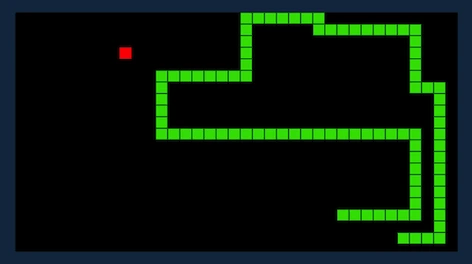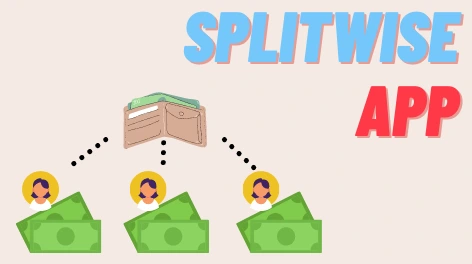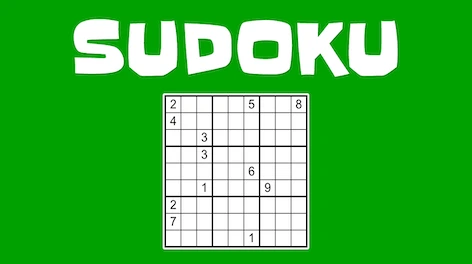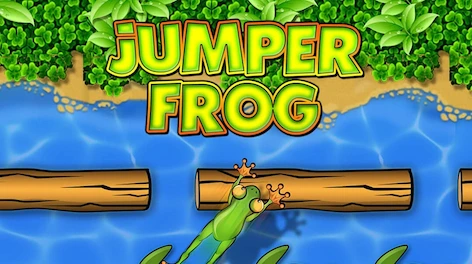Why should you do this course?

Click here
Starting from ₹ 1425/-
Key Highlights


 4/6 Months Course Duration
4/6 Months Course Duration
 Certificate of Excellence/Completion
Certificate of Excellence/Completion
 Placement assistance
Placement assistance
 Syllabus
Syllabus
-
Welcome aboard
Welcome to the course -
Vector
In this section we will learn about the container vectors which are same as the dynamic arrays with the ability to resize itself automatically.Since its a container it contains various functions which come quite handy while solving the problems. -
Strings
In this section we will learn about strings which is an alternative to character array, String data type helps in handling string easier and faster.With proper understanding of OOPs this concept becomes more clear. -
List
In this section we learn about the STL Lists which is based on the data structure Linked List which store data in a non-contiguous manner. -
Stacks
In this section we learn about the STL stacks which is based on the data structure Stacks which follows the principle of Last In and First Out. -
Queues
In this section we learn about the STL queue which is based on the data structure Queue which follows the principle of First In and First Out. This data structure works just like a normal queue does and it is mainly used as a helping data structure in Trees and Graphs. -
Maps
In this section we will learn about Maps which stores the data in the mapped form of key->value which is implement on the basis of Red Black Trees. -
Priority Queue
In this section we will learn about the STL priority queue which is primarily based on heaps which helps us understand how the infinite stream of data coming can be accessed to fetch the useful information, for example, find the most sold products on any website? -
Set
In this section we will learn about Sets which are internally implemented through BST which store unique elements following a specific order. -
Functions
In this section we will learn about various functions that are there in the STL which help us in solving various problems easily like find, sort etc.
-
Policy based Data Structures
In this section we will learn about the some data structures that are not part of the STL but are supported by the GCC. These data structures can be designed for high-performance, flexibility, semantic safety, and conformance to the corresponding containers in std. -
Tries
It helps us to search in constant time and incase you want to use auto suggestions features of Amazon, Flipkart or other sites search bar this is the solution. Many problems such as Maximum-Xor, and Maximum Sum etc. uses tries to help improve complexity of the problem. -
Persistent Tries
In this section we will understand the concept of persistency in tries. -
Binary Search
This is where you learn how being greedy can benefit you to solve certain problems in a faster way. The main point of focus here is to understand where we can apply Greedy over Dynamic Programming. -
Greedy Algorithms
In this section, we will understand how Bitwise operators like AND, OR, XOR, and NOT work on machine code to help and write programs that works faster. This concept is also very useful in Recursion as well as in Dynamic programming and Advanced DSA. -
Bit Manipulation
In this section we will understand about geometry and problems related to them and about convex hull. -
Geometry And Convex Hull
TIn this section we will understand about geometry and problems related to them and about convex hull. -
Hashing
It helps us to understand how we can store, update and delete the data in constant time. It is majorly used in Dynamic Programming and Graphs to help us make the time complexities of the algorithms better. -
Square Root Decomposition/Mo's
Algorithm
In this section we will learn about Sqrt Decomposition which is a method (or a data structure) that allows you to perform some common operations (finding sum of the elements of the sub-array, finding the minimal/maximal element, etc.) in optimal time. -
String Matching Algorithm
In this section we will learn about various string matching algorithm such as KMP Algorithm, Z-Algorithm etc. -
Heavy Light Decomposition
In this section we will learn about Heavy-light decomposition which allows us to effectively solve many problems that come down to queries on a tree. -
Fast Fourier Transform
IIn this section we will learn about Fast Fourier Transform and its application in using problem solving. -
Game Theory
In this section we will understand a new approach to deal with sequential game problems. -
Interactive Problems
In this section we will learn about interactive problems and how to approach them and how they are different. -
Theorems
In this section we will learn various theorams such as Totient,Fermat Little Theoram, Miller Theoram, Wilson Theoram etc.
-
Basics
Inorder to understand Recursion we must understand Recursion, so this is what is focussed here i.e. write codes using Recursion. It is used in Dynamic Programming and as well as in data structure such as Trees, Graphs, and Heap etc. -
Implementation Based
This section will be more focussed on the implemention of various problems using recursion. -
Quick Thinking
In this section we will learn we will combine what we have learned up until now and try to solve other difficult problems. -
Subset Based
In this section, we will understand how to solve algorithms such as phone search and advanced concept of Knapsack that is mostly asked in Interviews. -
Backtracking
It is the most important concept to understand in Recursion and it is thoroughly checked in Interviews and Technical Rounds. If one has to master recursion they need to master backtracking. -
Advanced Backtracking
In this section we will try to solve much more difficult problems based on backtracting and implementation.
-
Segment Trees
In this section we will learn about segment trees which are the used to store information about intervals/segments which in turn help us querying which of the stored segments contain a given point. -
Lazy Propagation
In this section we will learn to optimise our segment trees problems using lazy propagation. -
Persistent Segment Trees
In this section we will understand the concept of persistency in segment trees. -
Fenwick Trees
In this section we will learn about the binary indexed tree/fenwick trees which predominantly is used to efficiently update elements and calculate prefix sums in a table of numbers.
-
Basics
We learn how we can improve the time complexities of Recursive algorithms drastically using concepts like Top Down approach. Also we convert out Top down approach to bottom up approach using the recurrence relation and DP concept, it's exactly what is required for the master DP. -
One Dimentional DP
In this section we will go through the DP problems dealing in One Dimention. -
Grid Based DP and Two Dimentional DP
The most important concepts of DP are Knapsack, Optimal Game strategy, and solving string problems using 2D storage there by improving their complexities multiple folds. -
Multidimentional DP
In this section we will go through the DP problems involving Multi-Dimention. -
Atcoder DP Set
In this section we will go through all the problems of the famous atcoder dp contest. -
Longest Increasing Subsequence(Many
Ways)
In this section will will understand the famous DP problem using different technique.
-
Introduction
In this section we will learn about graphs as a non linear data structure and learn about its basic implementations and definitions. -
Traversals(BFS and DFS)
In this section we will learn the various ways of traversal across graphs through algorithm like bfs and dfs. -
Undirected Graph
In this section we will learn about undirected graphs and various algorithms regarding them. -
Directed Graph
In this section we will learn about directed graphs and various algorithms regarding them. -
Disjoint Set Union
In this section we will learn about Disjoin set and Union as a powerful tool in solving various graph related problems. -
Minimum Spanning Trees
In this section we will get a brief idea about mst and various algorithms regarding them such as Prism's and Krushkal. -
Shortest Path Algorithms (Dijkstras, Bellman
Ford etc)
In this section we will learn about shortest path algorithms on a weighted graphs such as Dijkstras, Bellman Ford and also Floyd Warshall Algorithm. -
Implicit Graphs/ Splitwise Algorithm
In this section we will learn about splitwise app implementation and Algorithm. -
Network Flow
In this section we will learn about various network flow and various advance algorithms such as Ford Fulkerson Algorithm, Minimum cut in a network flow. -
LCA
In this section we will learn about LCA, Articulation Points and Bridges. -
Problem Set
In this section we will go through all the concepts we have learned so far and use them in advance problems related to them.
-
Top Tech Company Questions
Practise from the most asked questions in companies such as Amazon, Facebook, Microsoft, LinkedIn, and Google etc. Become the programmer to crack any of your dream company. -
Google, Amazon, GoJek, Flipkart, Uber, Amex
Interview mantras
This will give you an idea of how you should prepare yourself for the final interviews and prepare yourself for everything that you may face during the placement process of any company.
 Projects
Projects

Snakes Game
This project uses Arrays to build a very interesting Snake game

Splitwise App
This project uses concepts of DSA to build Splitwise App

Sudoku
Make your very own Sudoku solver with Backtracking

Travel Planner
Plan your travel when you build your own application by using Graphs

Mario
Use DP optimisation to build this all time favourite game and be a leader in your pack

Jump Froggy
Design your very own Frog game while using Greedy optimisation in DSA
Choose Batch
Classroom Batch
 3-4 months duration and 200+ Handpicked questions
3-4 months duration and 200+ Handpicked questions
 Priority
Placement assistance & Doubt support
Priority
Placement assistance & Doubt support
 Personal mentoring, progress tracking and feedback
Personal mentoring, progress tracking and feedback
 Certificate of Excellence/Completion
Certificate of Excellence/Completion
 Free Wildcraft
bag, Swags and access to Online course
Free Wildcraft
bag, Swags and access to Online course
 Developer CV and In-class Hackathons
Developer CV and In-class Hackathons
Courses
Live Batch
 Priority
Placement assistance & Doubt support
Priority
Placement assistance & Doubt support
 Personal mentoring, progress tracking and feedback
Personal mentoring, progress tracking and feedback
 Certificate of Excellence/Completion
Certificate of Excellence/Completion
 Developer CV and In-class Hackathons
Developer CV and In-class Hackathons
Courses
 Starts 17 Mar'26
Starts 17 Mar'26


This course includes
-
30+ Live interactive lectures in fastrack mode
-
200+ Hand picked problems
-
Priority Doubt Support
-
 Certificate of Excellence/Completion
Certificate of Excellence/Completion
-
 Placement assistance
Placement assistance
-
 Personal mentoring, progress tracking
& Feedback
Personal mentoring, progress tracking
& Feedback
Online Batch
 190+ hours
Exhaustive content and Tech enabled Guided learning
190+ hours
Exhaustive content and Tech enabled Guided learning
 6 months
duration, 200+ questions and 6 live projects
6 months
duration, 200+ questions and 6 live projects
 Live interactive booster classes of difficult topics
Live interactive booster classes of difficult topics
 Certificate of Excellence/Completion
Certificate of Excellence/Completion
 Progress tracking and feedback
Progress tracking and feedback
 Optional Priority Placement assistance & Doubt
support
Optional Priority Placement assistance & Doubt
support
Courses
 Starts 1 Feb'26
Starts 1 Feb'26
Apaar Kamal


Choose Type
 Starts 1 Mar'26
Starts 1 Mar'26
Apaar Kamal


Choose Type
 Starts 1 Feb'26
Starts 1 Feb'26
Prateek Narang


Choose Type
 Starts 1 Mar'26
Starts 1 Mar'26
Prateek Narang


Choose Type
 Starts 1 Feb'26
Starts 1 Feb'26

Choose Type
 Starts 1 Mar'26
Starts 1 Mar'26

Choose Type
 Starts 1 Feb'26
Starts 1 Feb'26
Prateek Narang


Choose Type
 Starts 1 Mar'26
Starts 1 Mar'26
Prateek Narang


Choose Type
Why choose Coding Blocks
Learn and grow as a developer with our project based courses.

Superb Mentors
Best in class mentors from top Tech schools and Industry favourite Techies are here to teach you.

Industry-Vetted Curriculum
Best in class content, aligned to the Tech industry is delivered to you to ensure you are a darling of the Tech industry.

Project Based Learning
Hands on learning pedagogy with live projects to cover practical knowledge over theoretical one.

Superb Placements
Result oriented courses with placement across all genres, students as well as Working professionals.
Inspirational Success stories of CB Alumni
where hard work and determination meets victory!



Hii I am Sidharth Bansal from Delhi technology university. I have done competitive boot camp from coding blocks. This gave me a great exposure to problem solving mindset. I was select for GSOC 2018 at Public lab , Ruby on rails as my technological stack. Now getting an internship from good company was my next goal. So, by the tips and tricks explained by the team, I was easily able to crack all the round and grab the internship. I got selected in Amazon for internship. Getting into Google was a Dream. I got great exposure through Amazon interview and used that as a weapon in google interview. After clearing all the rounds I was able to garb my seat at Google intern also. All this was possible by the guidance of coding blocks. I am selected for Full Time Role at Gameskraft. It is the best gaming startup in India. I will love to explosure game development. It is really important to know different domains of Software Engineering in initial years of career as explained by him. Now at present I am GCI Admin at Public lab. Thank you cb for your love and support.


My interest in the field of competitive coding as well as data structures and algorithms increased during the summer training in Coding Blocks. I loved the way how the entire team used to explain any algorithm. The intricacies of algorithms and how they reduce the complexity of program has always intrigued me. I think that coding blocks gave me the important base of coding.


Competitive Programming is one of the most extensive course of coding blocks. It was a challenging and fun loving experience for me. I owe my success to my mentor and the great course.


I have been taught by best mentors at Coding Blocks. My crystal clear concepts, as well as familiarity with data structures, enabled me to crack Magicpin, Goibibo, and Zomato internships. I interned at Zomato in Summer 2019. I was offered a PPO at Zomato on the basis of performance during my internship tenure. Launchpad was my first course at Coding Blocks. After completing the course, I was very much familiar with DS and Algorithms. I practiced difficult topics in a very simplified manner. During the android course, I was amazed to see the amount of knowledge my mentor had in Android Development. After completion of android app development, I was able to make a few apps currently having 10k+ downloads. Few months after completing my Android Course, I became the TA of Online Android Batch at Coding Blocks. The best part of Coding Blocks is the quality of mentors and the experience that they have. Now, I can say that Coding Blocks has been the most crucial factor in shaping my career.


Couldn't have landed a better job, if it weren't for Coding Blocks.










Still in doubt? We are here to help you out!
Top placements from these programs





































Placement Assistance
A dedicated Placement team along with Hiring Blocks, the placement portal of Coding Blocks work round the clock to ensure the best of opportunities in the Tech arena are available to you.

Developer CV and Dev. Profile Preparation

Interview Preparation

150+ Partner Companies for Placements and Internships

Mock Interviews
Learning cycle
What an inspiration to all!
Coding Blocks has some of the best mentors in the Industry who will remain by your side during your Preparation for teaching, guidance and assistance.

Kartik MathurAcademics head and Founding member

Mosina AshrafSenior Instructor and Product engineer

Mayank JhaInstructor and Product engineer

Monu Kumar Senior Instructor and Product engineer

Your Code Buddies!
A wide network of TAs aka Teaching assistants, who are typical ex-students of Coding Blocks helps in Doubt resolution along with Mentors, through Video, Audio, Screen share and other media to ensure all your queries are addressed timely

Industry Coaches
Industry experts are guides currently working in Top companies like Google, Amazon, Microsoft and the like and they helps students with invaluable tips on the Industry, Hiring process, Mock interviews and other necessities required for paving the way into the Top Tech companies around the globe.

Tech Established Learning!
The e-learning portal is an in-house developed, state of the art application which uses the best of technology and resources to ensure all learners gain the maximum from their program. It provides immersive learning with suggestions and guidance to ensure even self learning is effective and fruitful. This portal allows learning through ebooks, videos, notes while allowing learners to attempt coding problems, MCQ assignments with attending live classes and asking doubts through chat and live video calling feature with mentors and TAs.
See what students have to say

Manali Biswas
My mentor taught a lot of concepts very well in such a short time. He also solved my doubts even after the course completion. I really loved to solve each question in the class and also those that were given as homework. This course really gave me a head start to my coding journey. I remember the day when I was just travelling somewhere when I spotted the Dwarka center. I never knew it would play such a big role in my learning process. Thanks a lot to Coding Blocks!

Simarpreet Sikka
Coding Blocks has helped me develop strong base in competitive programming. Algo++ and CP bootcamp helped me crack Tech Giant Microsoft with much ease.

Shadma Siddiqui
Coding Blocks is the best place to strengthen your concepts in programming and the course content is structured in a very proper way. Also, the environment will keep you motivated throughout. The TA support will help you whenever you are stuck. The one thing i loved the most was the way how my mentor cleared our concepts. No matter how many doubts you have they are always available to your support from online to offline. If it were'nt for Coding Blocks I would not be placed this early. Thank you CODING BLOCKS!!

Aman Bansal
I really enjoyed the environment CB provided. Not only was I intrigued by the depth of knowledge of the people at CB but I was also pushed and motivated to learn things to the same level as them. I also took the Online Competitive Coding course which certainly was the course that got me through the GS interview and Online Rounds. I can't thank my mentors enough for creating such an awesome course. I can't help but say that CB helped me raise the bar which I had set for myself when it comes to coding and learning.

Srishti Kohli
I'm extremely thankful to Coding Blocks for making competitive coding a cakewalk! My mentors were wonderful teachers and mentors. The course content is clear and complete. I will forever be grateful for the guidance.

Rajat Gupta
Coding Blocks has always helped me connect with talented people around. As a campus superhero, I have been in touch with my mentors, both of whom have never failed to guide me and my peers in achieving the best!

Mahima
My coding journey started at Coding Blocks. I was a student of Launchpad C++ course and it helped me in grabbing a great understanding of data structures and algorithms and improved my problem solving skills as well. I'd like to thank Coding Blocks for all the help and support :)

Dhruv Agarwal
If you have time for only 1 course to pick, go for interview prep. Skills acquired to time spent ratio is amazing. Thanks to my mentors and the team I was able to crack the majority of online rounds and interviews. The teaching style of them made me understand DSA effortlessly.

Anshuman Diwaker
I had an amazing time learning Data Structures and Algorithms(JAVA) at Coding Blocks. The mentorship and curriculum covered by my mentor was excellent. I would revert back to the lectures every time i needed to revise my concepts again. Concepts taught in JAVA were also very useful during my Internship. Thus it was a great learning curve for me.

Dhriti Saini
I built my foundation of Data Structures and Algorithms during the Launchpad C++ course which helped me develop interest in coding and problem solving. Thank you to the CB mentors who guided us.

Dhiraj Kumar Jain
The course made my basics very clear and the assignments and questions gave him ample practice for the interviews . I am very much thankful to my mentor for his guidance and continued support . The techniques explained my him in the course proved very much helpful to me in the interviews . I am thankful to Coding Blocks for making such a course which helped me ace in my interviews.

Anshul Mittal
Coding Blocks helped in gaining enough experience to get internships at giants like Google and Rubrik.
See a class in action!
Classroom Classes
Online Classes
Live Classes
Frequently Asked Questions
Learn and grow as a developer with our project based courses.
-
What is competitive programming and why is it important?
Competitive programming is solving coding problems within time limits on platforms like Codeforces and LeetCode. It builds logical thinking, speed, and algorithm mastery. Coding Blocks’ competitive programming course in Delhi, Noida, and Online helps students strengthen advanced data structures and algorithms to excel in interviews and contests.
-
Is DSA necessary for Competitive Programming (CP)?
Yes. Data Structures and Algorithms (DSA) are the foundation of competitive programming. Without mastering trees, graphs, and dynamic programming, it’s hard to succeed in ICPC or other programming contests. Coding Blocks’ DSA + Competitive Coding course teaches these concepts in Classroom, Live, and Online formats.
-
How to start competitive programming?
Begin by learning DSA in C++/Java/Python, then practice problems on Codeforces, AtCoder, and LeetCode. Follow a roadmap: basics → standard algorithms → contests. Coding Blocks’ competitive programming classes in Delhi NCR and Online guide beginners step by step with a structured syllabus, mentorship, and coding contests.
-
What is included in the competitive programming syllabus?
The competitive programming syllabus at Coding Blocks includes recursion, dynamic programming, greedy methods, graphs, segment trees, and advanced data structures. Students also train for ICPC programming contests with regular mock coding contests. Classroom (Delhi/Noida), Live, and Online batches ensure complete preparation for interviews and competitions.
-
What is the best language for competitive programming?
Most recommend C++ for competitive programming due to its STL and speed. However, Java competitive programming and Python competitive programming are also popular. Coding Blocks offers specialized tracks to learn competitive programming in C++, Java, and Python, available in Classroom (Delhi/Noida), Live, and Online formats.
-
Is the Python DSA course free at Coding Blocks?
The Python with DSA course is a paid program, but Coding Blocks offers a scholarship test. Students can win up to 100% scholarship for all Classroom courses in Delhi and Noida, including free certification after completion. This makes it possible to pursue the Python DSA course for free if qualified.
-
What is Google Code Jam and the ICPC programming contest?
Google Code Jam and the ICPC programming contest are global competitions testing algorithmic problem-solving. Though Code Jam ended in 2023, ICPC continues as the world’s top programming contest. Coding Blocks prepares students for ICPC, Codeforces, LeetCode, and Kickstart via Classroom, Live, and Online courses.
-
What skills are required to crack Google or FAANG
interviews?
Strong DSA, advanced data structures, and competitive programming skills are essential. Knowledge of C++, Java, or Python, along with system design and problem-solving ability, is key. Coding Blocks’ competitive programming for interviews course builds these skills through contests, mock tests, and placement guidance in Delhi NCR and Online.
-
What is the salary of a competitive programmer in India?
There is no direct “competitive programmer” role. But mastering CP helps secure software developer jobs in product-based companies. Freshers with proven CP skills earn between ₹10–40 LPA in India. Coding Blocks supports students with 100% job assistance and hiring drives in Delhi NCR.
-
How does competitive programming help in placements and
interviews?
Competitive programming for placements builds speed, accuracy, and problem-solving depth. It prepares you for coding rounds in product-based companies. Coding Blocks’ competitive coding course integrates DSA for competitive programming with mock interviews and contests in Classroom, Live, and Online formats.
-
How long does it take to master competitive programming?
It usually takes 6–12 months of consistent practice with contests and advanced data structures. With Coding Blocks’ competitive programming roadmap, including classes in Delhi/Noida, Live interactive sessions, and Online learning, students progress from beginner to ICPC-ready problem-solving.
-
Why choose Coding Blocks for competitive programming?
Coding Blocks offers expert mentors, a structured competitive programming syllabus, and proven results in ICPC. With Classroom courses in Delhi/Noida, Live interactive classes, and Online programs, plus monthly hiring drives and 100% job assistance, it’s the best course for competitive programming in India.
 194+ Hours Online Lectures
194+ Hours Online Lectures
 Topic Based Assignments
Topic Based Assignments
 Knowledge of DSA required
Knowledge of DSA required
 Covers Foundation, Basic and Advanced
modules
Covers Foundation, Basic and Advanced
modules
 Priority Doubt Support
Priority Doubt Support
 Master every concept of Graph
Master every concept of Graph























 Mentors
Mentors




